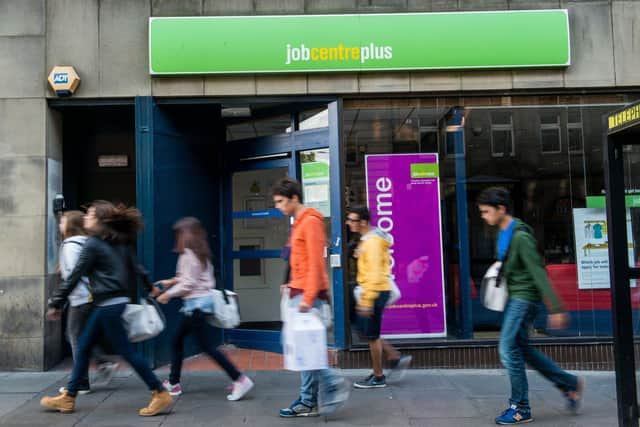Scotland sees drop in hiring activity in February, prompting concern for outlook, RBS report finds
Hiring conditions across Scotland could worsen further in the months to come after a drop in activity in February, according to a report published today.
The latest Royal Bank of Scotland (RBS) Report on Jobs survey, compiled by S&P Global, has revealed a third consecutive monthly fall in permanent staff appointments north of the Border, with this index falling at the quickest pace in 15 months to reach 41.1 from 45 in January. Respondents linked the drop to fewer vacancies.
Advertisement
Hide AdAdvertisement
Hide AdScottish recruiters also recorded a drop in billings received from temporary workers last month, although the respective seasonally adjusted index ticked up to 49.6 to signal only a fractional fall in temp billings overall. NatWest-owned RBS said that while some panel members reported reduced demand for short-term workers or that temp roles had often been converted to long-term positions, this was partially offset by reports of successful recruitment drives.


Turning to availability of workers, there was a fall on the permanent side to a reading of 38.6, extending the current run of decrease that began in February 2021, and attributed to a lack of suitably skilled workers and economic uncertainty making people more hesitant to seek out new roles. However, the temp picture was brighter at 52.1, and Scottish recruiters reported an expansion of staff supply for the fifth month in a row, often linked to the completion or non-renewal of contracts.
Looking at salaries, pay for permanent new joiners across Scotland increased in February, as has been the case in each month since December 2020, and seen as being due to the highlighted shortage of suitable candidates. The relevant reading was 59.7 last month. Wage inflation for temp staff softened since January but was slightly quicker than the long-run average, and this index came in at 56.6.
In terms of job ads, there was a fall in permanent vacancies during February across all of the eight monitored employment groups apart from nursing/medical/care, giving a reading of 42.5, and extending the current run of contraction to seven months. There was a seventh successive monthly fall in demand for short-term staff across all sectors, led by executive and professional, to reach 42.1.
RBS chief economist Sebastian Burnside said: “The latest recruitment survey continues to highlight reduced hiring activity across Scotland amid a backdrop of lingering economic uncertainty. While lower confidence meant that employers remain wary of taking on additional staff, there were also reports that shortages of suitably-skilled workers had impacted recruiters abilities to fill roles.
"At the same time, candidates were cautious to seek new opportunities, instead favouring security in their current roles or pausing their job search. With vacancies continuing to fall, this suggests that we could see a further deterioration in hiring conditions across Scotland in the months to come. However, starting pay for both permanent new joiners and temp workers continued to increase at marked rates, suggesting that while overall hiring activity is down, for the right skillset employers are willing to raise their offers.”
Comments
Want to join the conversation? Please or to comment on this article.